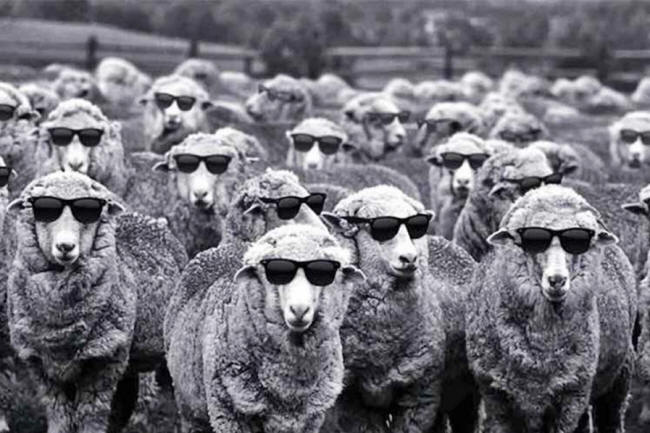|
by Dylan Charles
August
17, 2021
Their behavior is on auto-pilot 99% of the time as their subconscious mind steers them toward meeting its own needs.
It doesn't matter to the
subconscious if its mistaken and the behavior is self-destructive or
even dangerous, so long as it thinks it is fulfilling its basic
drive to keep you safe amongst your tribe.
This phenomenon is well-known, and is illustrated in a social experiment overseen by psychology professor Dominic Abrams in which researchers attempt to answer the following question.
In a hotel room rigged
with hidden cameras and microphones, participants in a staged
internet marketing event attempt to influence the survival instincts
of another by pretending to ignore smoke and smoke alarms in a
conference room with eight people.
When the participants was in the room with seven other people who pretended to ignore the smoke, the participant did nothing, staying in the room on an average of thirteen minutes, long enough to have killed them in a real fire.
In 1979 a scenario like this played out in real life in a Woolworth's department store in Manchester, England.
About 500 people were in the building when a fire broke out, which ultimately killed ten and sent forty-seven to the hospital.
Investigators found that the majority of deaths occurred in the restaurant where people simply did not evacuate, presumably because of the ingrained and group behavior of waiting to pay the check.
One lesson here is that when people are alone they tend to take responsibility for themselves.
However, when part of a group, a person tends to figure
out which behavior is the most acceptable to the others, look for
the expectable scripted behavior, not embarrass themselves by taking
the lead, and defer to the norm of the group, even when the norm is
dangerous.
If we lack the
self-awareness and knowledge of how we choose our behavior, the more
likely it is that we will mimic those around us, parrot what
everyone else is talking about, and go along with anything just to
get along, even at the risk of our own lives.
Heavily influenced by 24-hour news and social media culture, masses of people are frozen in the face of overwhelming pressure to conform, forgoing consideration of their own health, wellness and personal conviction, and refusing to object to ever greater control measures.
Many of the ideas to
approach our current situation don't make rational sense, and will
certainly create ever-growing dangers for ourselves, however, not
wanting to suffer the embarrassment of taking action, so many fail
to react to the greater dangers being presented and move toward
conformity with the herd.
In 1963, Stanley Milgram's also famous social psychology research,
This has disturbing echoes in today's world where all of a sudden so
many people feel compelled to demand what medicines another takes,
and some even support the idea of severely restricting the freedoms
of those who do not conform.
This means that an
individual can be compelled to act against his/her own interests in
the subconcious' drive to seek security within its tribe.
Commonly, these take form
as poor eating and spending habits, the deterioration of the
physical body, dependence on a dangerous medical establishment for
health, and deference to psychiatry for mental wellness.
The most fulfilling lives
are those self-directed by our own creativity and our own ambition,
and though you may honestly desire to self-actualize into your most
powerful self, unless you are aware of how your unconscious mind
influences you and pits you against yourself for its own survival,
you're going to have a hard time overcoming the incredible influence
of nature.
|


